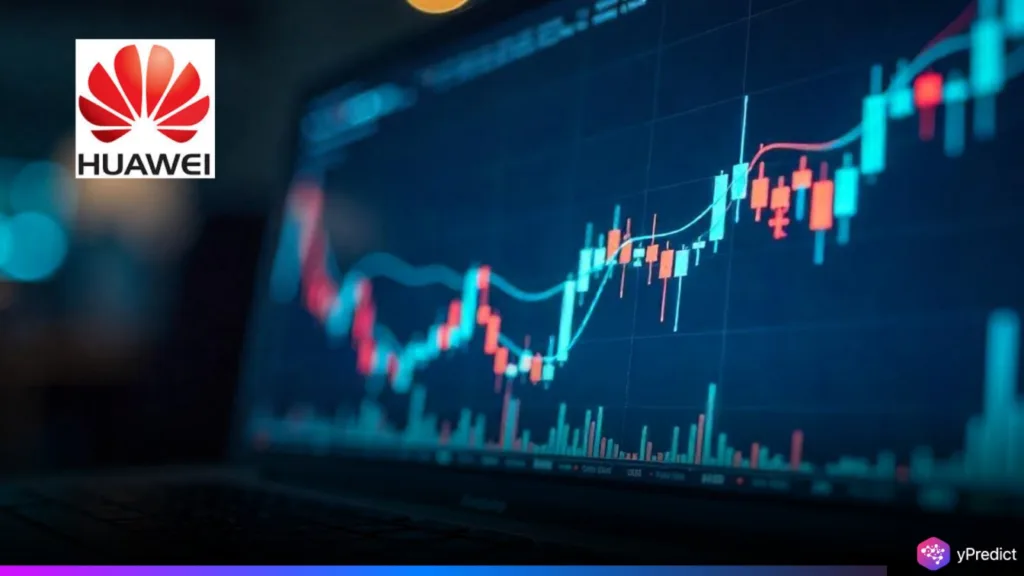
Taiwan has placed Chinese tech giants Huawei and SMIC on its high-tech export control list, requiring Taiwanese firms to secure licenses before supplying sensitive technologies. The move, announced by Taiwan’s Ministry of Economic Affairs, highlights growing geopolitical tensions and aligns with U.S. efforts to limit China’s tech progress. As a key player in the global chip industry, Taiwan’s export restrictions reinforce its role in protecting semiconductor supply chains and signal a shift toward stricter controls in the global technology landscape.
Taiwan Tightens Tech Controls on Huawei and SMIC
Bloomberg reports that Taiwan has officially blacklisted Huawei Technologies and SMIC, both central to China’s semiconductor development plans. Officials added these companies and several subsidiaries to the island’s Strategic High-Tech Commodities Entity List without public announcement. Taiwan quietly updated the Ministry of Economic Affairs’ trade website over the weekend to reflect the expanded blacklist entries.
Reports suggest that this measure may further restrict Huawei’s ability to source AI accelerator chips, which it has developed in partnership with SMIC using advanced 7-nanometer processes. The move also targets SMIC’s access to Taiwan’s globally dominant chipmaking ecosystem.
Under Taiwan’s current trade regulations, firms listed in this entity index face stringent restrictions. Domestic companies are now required to seek government approval before supplying any goods or services to these blacklisted entities, including critical materials and technologies used in advanced chip fabrication.
Strategic Pressure on China’s Semiconductor Ambitions
This move may greatly restrict Huawei and SMIC’s access to essential chipmaking tools and expertise rooted in Taiwan’s ecosystem. Taiwan leads global semiconductor innovation and plays a crucial role in shaping advanced technologies and supply chain dynamics. TSMC, which makes high-performance chips for Nvidia and Apple, has already reduced interactions with Chinese firms due to earlier U.S. penalties. Its position in the AI supply chain makes these restrictions even more impactful for China’s tech ambitions.
The updated blacklist targets not only Huawei and SMIC’s mainland operations but also several overseas affiliates in Japan, Russia, and Germany. The move aligns with similar U.S. efforts, as both companies are already sanctioned under Washington’s entity list, which prohibits them from acquiring American technology or products derived from it.
The decision would further restrict Huawei and SMIC’s access to essential chipmaking technology and infrastructure, much of which is concentrated in Taiwan. TSMC, a global semiconductor leader and key supplier to Nvidia and Apple, has already scaled back ties with Chinese firms under earlier U.S. sanctions.
Global Tech Tensions Fuel Policy Shift
This development emerges as geopolitical tensions in the Taiwan Strait deepen. President Lai Ching-te’s recent designation of China as a “foreign hostile force” has further strained cross-strait relations, reinforcing Taiwan’s stance against Beijing’s influence. China continues to assert its claim over Taiwan, pledging reunification by force if necessary, while Taipei maintains its sovereignty and global trade partnerships, particularly with the United States.
Moreover, Taiwan’s export restrictions aim to close regulatory loopholes and align with U.S. efforts to isolate China’s chip and AI sectors. Analyst Ray Wang noted that while Huawei and SMIC already face heavy sanctions, the new restrictions tighten controls on their technological advancement.
In 2023, Huawei and SMIC made waves with a 7nm chip in Huawei’s Mate 60, triggering U.S. probes into potential export violations. Investigations found TSMC components in Huawei’s AI processors, prompting tighter controls and halted shipments to affiliates like Sophgo. Taiwan responded by reinforcing its commitment to block unauthorized tech transfers and defend local talent from recruitment efforts by firms like SMIC.
Conclusion
Taiwan’s export restrictions underscore mounting concerns over the integrity of its semiconductor sector. As the base of TSMC, the world’s leading contract chipmaker and a critical supplier to global tech giants, Taipei has pledged to curb talent poaching and safeguard sensitive technologies. Officials have accused companies like SMIC of trying to recruit Taiwanese engineers and circumvent export controls through indirect channels.
Though Taiwan has long limited chip equipment exports to China, this marks its first formal blacklist of major Chinese tech firms, a clear policy move and geopolitical signal of its intent to help curb China’s semiconductor advancement.
.







